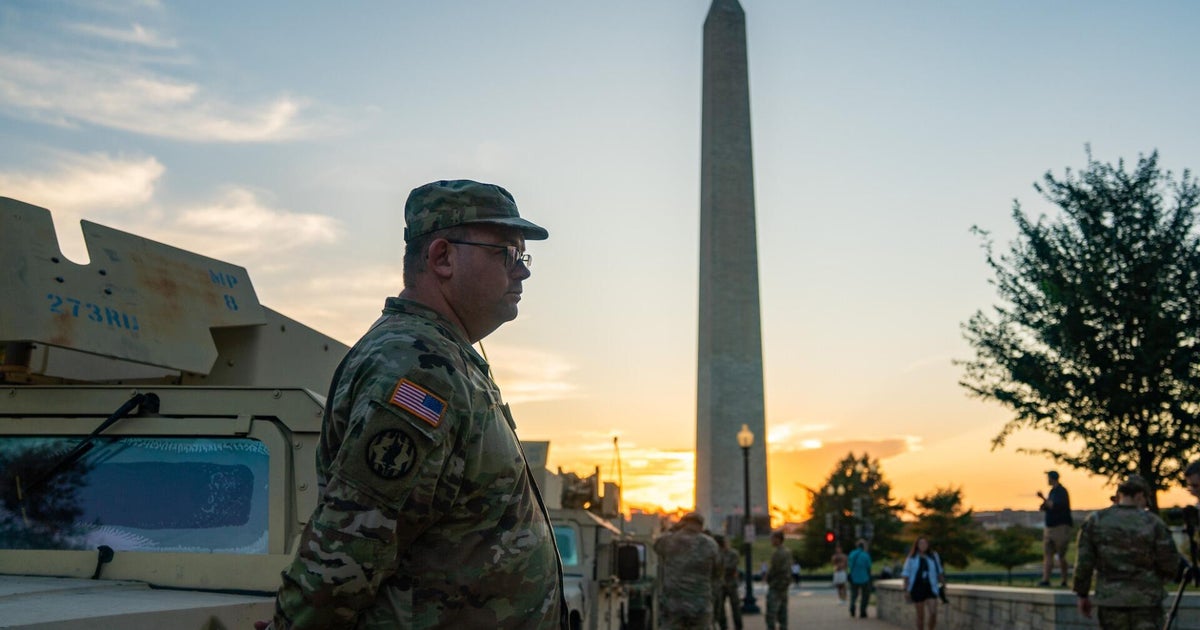In a significant escalation of federal presence in Washington, D.C., President Donald Trump has announced plans to substantially increase the number of National Guard troops deployed throughout the capital. This move comes alongside an ambitious proposal to extend federal control over the District of Columbia’s Metropolitan Police Department beyond the typically permitted one-month duration.
President Trump, addressing the media at a recent briefing, underscored what he described as a necessary response to heighten security and law enforcement effectiveness in the nation’s capital which he believes are currently inadequate. “We’re going to have more National Guard troops on the ground,” the President stated. “We need to ensure that our capital city is safe and secure, and this is in the best interest of everyone.”
Currently, the National Guard deployment and the federal takeover of the local police are legally confined to a 30-day period, after which local authority is to resume control unless an extension is approved. The precise reasons for requiring an extension have not been fully outlined, but President Trump has pointed to recent events in the city, describing them as necessitating a robust response and justifying a continued federal presence.
Scott MacFarlane, a noted analyst, has been following these developments closely and offered his insights. According to MacFarlane, “This is a rare instance of presidential intervention in local law enforcement, which traditionally operates autonomously and without direct federal control.” He further notes that such moves are likely to stir significant debate among local leaders, civil liberties advocates, and citizens about the implications for local governance and the autonomy of D.C.
The decision to seek an extension of control over the D.C. police invites scrutiny from legal and policy experts, who question both the need for prolonged intervention and its constitutionality. The District of Columbia has its own elected municipal officials and police force which are typically overseen by local authorities, not the federal government. President Trump’s proposal to extend the intervention period suggests a shift towards greater federal oversight, a move that could set a controversial precedent.
Moreover, the increase in National Guard troops is a development that raises questions about the federal government’s view of the security situation in the capital. While additional troops may provide a sense of heightened security, critics argue that this could also lead to increased tensions and a militarized atmosphere that might not be conducive to the city’s daily operations and democratic engagements.
Observers have also noted potential implications for upcoming public events and demonstrations, which are common in the politically active environment of the capital. The presence of more uniformed personnel could affect the dynamics of these events, influencing how they are managed and perceived both locally and nationally.
To justify his decision, President Trump has cited specific incidents of violence and unrest that have occurred in the city, suggesting that these events are beyond the capacity of the local police to manage. However, data and analysis provided by local security officials don’t always align with the urgency of the situation as presented by the President. This discrepancy has led to further debates on the actual versus perceived security needs of the capital.
Experts on federalism and law enforcement like Professor Jane Hollander from the University of the District of Columbia argue that such a takeover “sets a dangerous precedent where federal intervention becomes normalized, potentially undermining the principle of local control over police forces.” Hollander emphasizes the importance of assessing the situation critically, ensuring that any federal intervention is justified, temporary, and respectful of constitutional limits.
Residents and local authorities in D.C. have mixed reactions to the President’s announcement. Some groups, feeling alarmed by the recent uptick in violence, see the President’s move as a step towards restoring order. Conversely, others view it as an undue interference that could disrupt local governance and exacerbate relations between federal entities and the community.
In his announcement, President Trump did not specify the number of National Guard troops to be deployed, nor the exact duration for which the extended federal control would last, details that are likely to emerge in coming discussions with Congress and local leaders. These decisions will need to be watched closely, as they will have significant consequences on the governance of the District of Columbia and potentially influence future interactions between state and federal authorities across the nation.
Moving forward, the administration will need to navigate the legal ramifications, logistical challenges, and public scrutiny associated with these decisions. How this scenario unfolds could also weigh heavily on public perceptions of federal authority and its impact on local autonomy, especially in a high-stakes election period where every decision is magnified in the public eye.
In conclusion, President Trump’s decision presents complex challenges that intertwine legal frameworks, public safety considerations, and broader political implications. As the situation develops, it will undoubtedly serve as a critical case study in the balance between national security and the sanctity of local governance, setting an important precedent for the future interactions between federal and municipal authorities across the United States.









